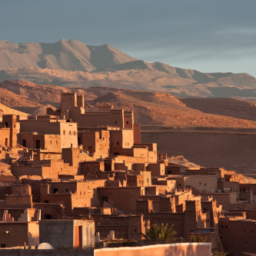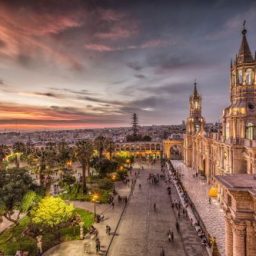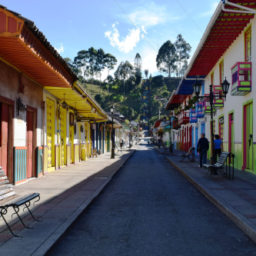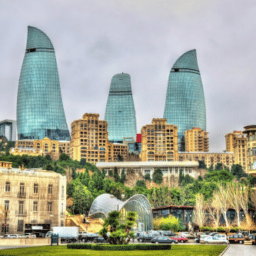

Have you ever wondered what living in Argentina would be like? From delicious steaks and wines to endless sunny days, there are plenty of reasons why this country stands out.
If you have ever been curious to learn more about language in Argentina, get ready for a short journey – one that goes beyond the official language, Spanish. Join us to immerse ourselves in the Argentinian culture.
Contents
ARGENTINA IN BRIEF
Argentina is the 8th largest country in the world, spanning over 2.7 million square kilometres. It is bordered by Chile to the west, Bolivia and Paraguay to the north, Brazil to the northeast, and Uruguay and the South Atlantic Ocean to the east. The country has a varied topography, with the Andes mountain range dominating the western region, and the Pampas grasslands covering much of the central and eastern parts of the country. It is home to several world-famous natural wonders, including the Iguazu Falls, Perito Moreno Glacier, and Tierra del Fuego.
HOMELAND OF TANGO
Argentina is often referred to as the “country of tango”, as this passionate dance style originated in the working-class neighbourhoods of Buenos Aires in the 19th century. Tango music quickly became an integral part of Argentine culture. The dance has been adapted and evolved over time, with new styles and variations, in different parts of the world. Despite these changes, the essence of tango remains deeply rooted in Argentine history and culture, making it a symbol of national identity and pride.
LANGUAGES IN ARGENTINA
In Argentina, Spanish is the most widely spoken language, but it is not the only one. Immigrant populations have also brought other popular tongues to the country, including Italian, German, and French. Additionally, there are native languages that can be heard in the country, including Quechua and Guaraní. These two indigenous tongues are recognized by the state.
If you are looking for a reliable Spanish translator, contact us. Our team will be happy to help you with any language mission you may have, e.g. text translation, interpreting during meetings, subtitle creation, video transcript or copywriting.
SPANISH LANGUAGE IN ARGENTINA
Spanish is the official language of Argentina and is spoken by the vast majority of the country’s population. The dialect used in the country has been heavily influenced by Italian, due to the large number of immigrants who came to the country in the late 19th and early 20th century.
The history of the Spanish language in Argentina dates back to the beginning of the 16th century, when the country was colonized by Spain. The language was brought to the region by conquistadors and missionaries who sought to spread Christianity and establish Spanish rule. Over time, it became the dominant language of Argentina, supplanting the tongues of indigenous people.
Argentine Spanish is easily recognized by a distinct accent and vocabulary, with some words and phrases borrowed from Italian, French, German, and indigenous languages. The pronunciation differs slightly from the Castilian dialect used in the Iberian Peninsula. Additionally, there are few grammar differences, like the usage of vos instead of tú for the second-person plural.
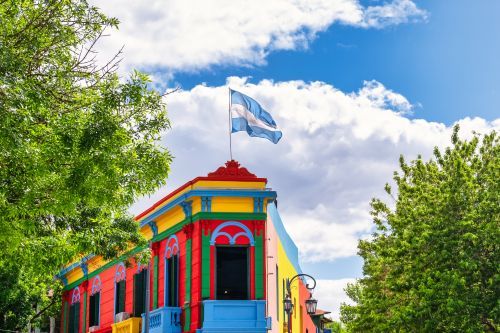

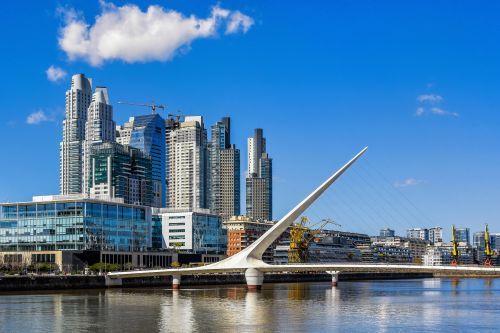
ITALIAN LANGUAGE IN ARGENTINA
Italian culture has had a significant influence on Argentina, with around 30 million Argentinians claiming Italian ancestry (source: wander-argentina.com). From the architecture to the cuisine, the Italian presence can be felt in every corner of the country.
Most Italians came to Argentina between the end of the 19th century and the beginning of the 20th century. Probably the most famous Italian-speaking Argentinian is Pope Francis. One of the most notable Italian contributions to Argentine culture is the language, still widely spoken and studied throughout the country.
ARABIC LANGUAGE IN ARGENTINA
Beyond one million people in Argentina speak Arabic. Before the second World War, more than 100 thousand immigrants came from the Middle East: Syria, Jordan and Palestine to South America during the Mahjar (emigration). As a curiosity, one of the first settlers in Ushuaia, Barcleit Fadul, originated from Lebanon.
QUECHUA LANGUAGE IN ARGENTINA
The largest number of Quechua speakers, descendants of indigenous people, live in the north-western provinces (Salta, Jujuy, Catamarca and Tucumán). The language can also be heard in Santiago del Estero and Buenos Aires. It is often present in traditional songs: huayño and tinku. Although Quechua is not widely spoken in Argentina today, the tongue plays an important part in the country’s culture and history. Its presence is cherished by indigenous communities and local organisations.
WHAT TO SEE IN ARGENTINA?
If you are planning a trip to Argentina, there are plenty of breathtaking places to visit. From the awe-inspiring Iguazu Falls in the north to the glaciers and snowfields of Patagonia in the south, you will find something for yourself.
For an urban adventure, check out Buenos Aires and explore its bustling city streets. Take a stroll along the famous La Recoleta Cemetery and learn about Argentina’s fascinating history. If you prefer outdoor activities, head to Tierra del Fuego National Park to marvel at its natural beauty. No matter what your travelling style is, there are plenty of attractions in Argentina to keep you entertained.
BEFORE YOU GO: LEARN SPANISH
In Argentina, in smaller towns off the beaten track, you may find it difficult to communicate in English. Therefore, prepare yourself in advance and learn the basics of the local language. Our Spanish course will help you start your new language adventure. The sooner we begin, the more you will learn before you embark on a new journey.







